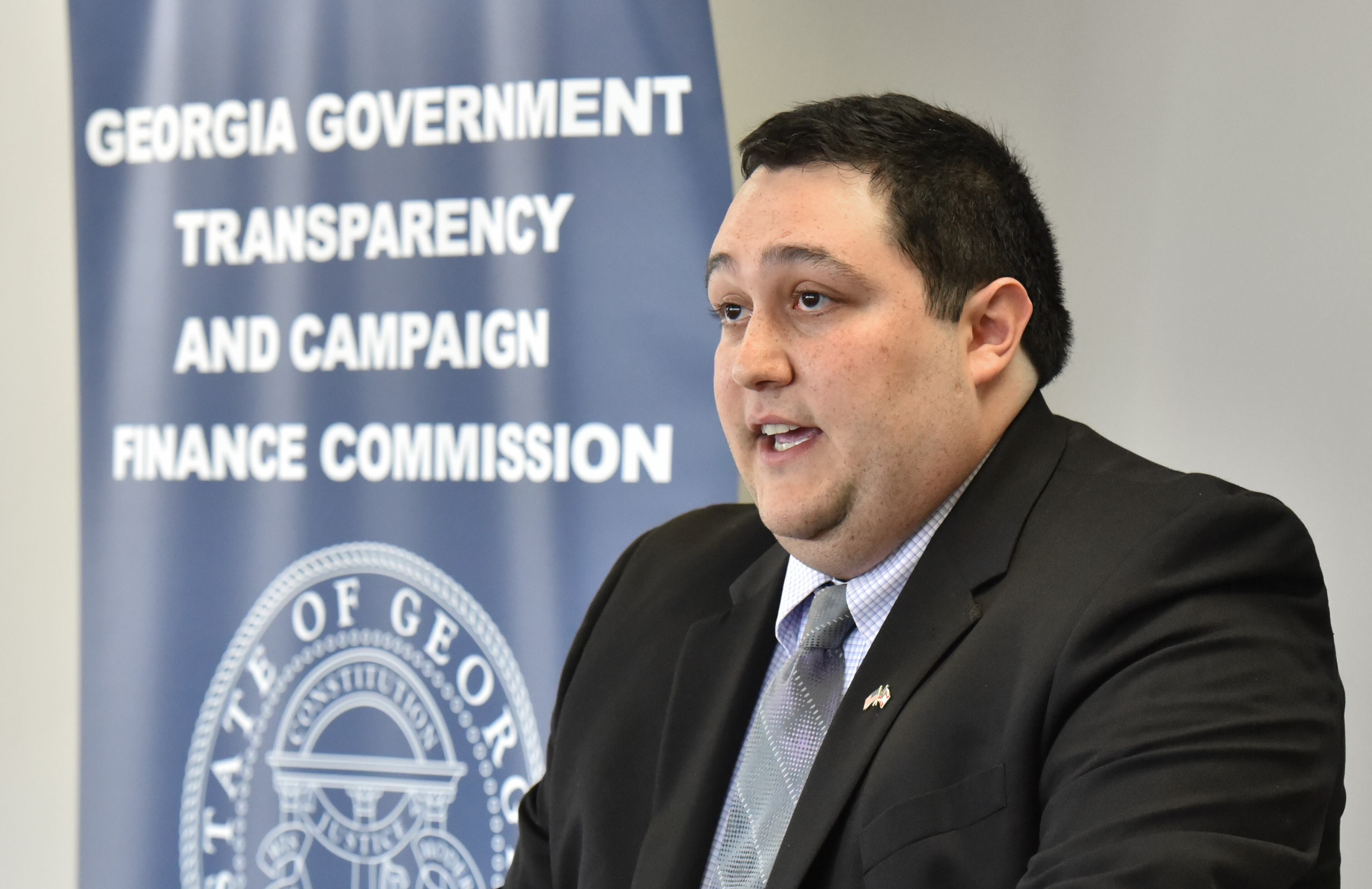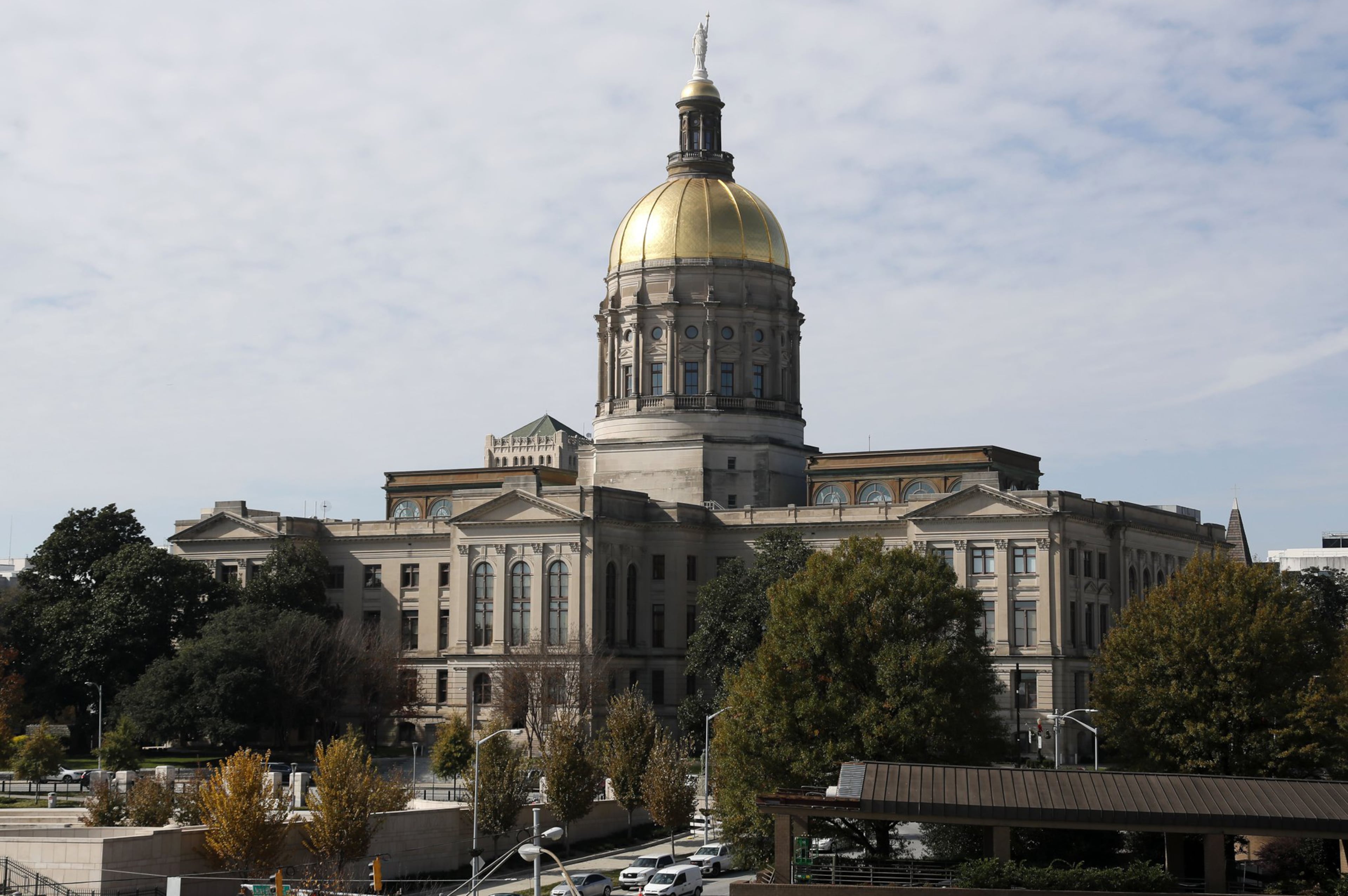Abrams camp to turn over emails that Georgia ethics panel sought for years

One 2018 email complained that a left-leaning voter registration group that Stacey Abrams founded was late paying canvassers. Others involved notes between Abrams’ aides and a Democratic party leader and nonprofit state director about upcoming events in the months leading up to her first unsuccessful run for governor.
For four years the emails have been at the center of a court fight between Abrams’ campaign and the state ethics commission, which has been investigating whether her campaign illegally coordinated with outside groups. Abrams’ campaign has called it a partisan “fishing expedition.”
A judge recently ordered the campaign to turn the emails over to the ethics commission. The Atlanta Journal-Constitution obtained the correspondence this week - fewer than two dozen messages in all that her camp says prove they didn’t do anything illegal. Ethics officials aren’t so sure.
So why the lengthy legal battle over the emails? Abrams’ camp has argued it didn’t want to set a legal precedent that would force future campaigns to disclose internal communications that might contain sensitive information.
Under Georgia law, groups advocating for candidates must disclose contributions and expenditures regularly and are generally not allowed to directly coordinate their efforts with a candidate’s campaign, such as jointly planning advertising or canvassing efforts.
In one email exchange, the mother of a political canvasser complained to the leader of the New Georgia Project — a voter registration nonprofit that Abrams founded — about late payments to workers in Atlanta, some of whom had banks reject checks for insufficient funds once they received them.
The woman wrote that her daughter was provided with “Abrams for Governor materials to share with residents.” She doesn’t say who gave them to her daughter.
Nse Ufot, then-chief executive officer of the New Georgia Project, responded, “We do not have any relationship, nor have we coordinated with, Ms. Abrams or her campaign.” She apologized for pay arriving late and said banks had extra scrutiny of NGP checks because of “multiple attempts to breach our account with fraudulent checks.” Abrams was CC’d on the response, as was her campaign.
Other emails were between Abrams’ campaign staff and then-state Sen. Nikema Williams, a future Democratic Party chairwoman, about various events. Williams has since been elected to Congress.
At the time, Williams was state director of Care in Action, the nonprofit arm of the Domestic Workers Alliance, which openly backed Abrams and joined Abrams’ group Fair Fight in suing the state after the 2018 election.
David Emadi, the ethics commission’s executive secretary, said his office had not yet received the emails and he would wait to comment until after he sees them.
Abrams campaign manager Lauren Groh-Wargo said, “While the politicization of the Ethics Commission continues to deeply concern us, we are following the court’s order and producing the emails Gov. Brian Kemp and his allies have been wastefully spending taxpayer money chasing for years.
“They have yet again turned up no evidence of their outlandish claims -- because the Abrams campaign in 2018 did not break rules on coordinating with outside groups, period,” she said. “Their true aim is clear: to chill political competition in Georgia, and we have been proud to stand against this over-reach to protect future campaigns that may not have the resources to fight back.”

‘Fishing exhibition’
Emadi, a political donor to Kemp, started the investigation shortly after being hired by the commission in early 2019.
While Emadi was accused of partisanship in his investigation of Abrams’ campaign and the groups, many of the questions he raised came out of campaign report audits that commission staffers performed well before he took office. Staffers had accused the previous executive director of sitting on the findings.
Abrams’ camp says it has provided thousands of documents to the commission and that the panel was seeking records that either didn’t exist or should have no bearing on its case. They called it a “fishing expedition. "
They also said giving up some of the campaign documents Emadi demanded would have a “chilling effect” on future campaigns that would fear — among other things — that strategy and all other internal communications would be disclosed.
The commission’s efforts have met with some success.
One of the groups backing Abrams, Gente4Abrams (People for Abrams), was fined $50,000 by the panel in 2020 for failing to report what it spent to help her win the Democratic primary in 2018.
The group spent $240,000 for canvassing, social media posts, and print and radio advertising to help Abrams win the primary but didn’t initially report its expenditures or where it got the money to pay for those efforts, the commission said.
The group later registered with the state and reported spending about $685,000 more to help the Democrat in her 2018 campaign.
After fighting court battles, the commission decided in August 2022 that there was probable cause to believe the New Georgia Project spent possibly millions of dollars to support Abrams without disclosing it.
The case is before a state administrative law judge, and the New Georgia Project is suing the state in federal court, arguing the commission used an unconstitutionally broad definition of a “campaign fund” to allege the money the group spent before the 2018 election should have been disclosed as a campaign expenditure.
As nonprofits, the group’s lawyer said, the primary purpose of the New Georgia Project and an affiliate, the New Georgia Project Action Fund, is not influencing election outcomes, and the groups are not required to file state paperwork to report contributions and expenditures.
But the commission’s lawyer and commission members said if the groups spent money promoting Abrams and other Democratic candidates, their “primary purpose” is irrelevant — they still have to file disclosures.
The commission staff says the groups hired canvassers, passed out literature, promoted Abrams’ candidacy — and the candidacy of other candidates — and solicited contributions.



